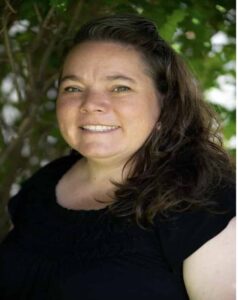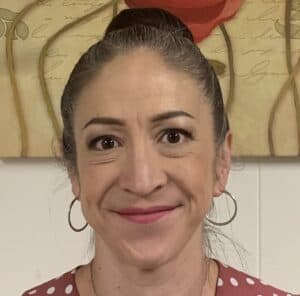CAGT OPPORTUNITIES:
Student talent video: Students K-12, submit a short 20-second Tik Tok style video demonstrating your amazing talent. Show us what you’ve got! Make us believe!! Students, you may create your 20-second talent video now. Submission link coming soon.
Student art contest: Students K-12, we invite you to create an original artwork to submit in our 6th annual CAGT Student Art Contest inspired by the theme of our upcoming conference: “Purpose and Passion”. Your piece might be chosen to be on display at the CAGT Conference in October 2024 at Embassy Suites in Loveland, CO. Visit the CAGT Conference website for more details (to be posted in spring 2024).
The referral window is now closed. Please contact the Site Leader or GT Teacher at your student’s school if you have any questions.
La oportunidad para referir a su estudiante está cerrada. Si tiene preguntas, póngase en contacto con el Líder del Plantel o el maestro de dotados y talentosos.
We envision schools where giftedness and high potential are recognized, valued, and nurtured in children from all backgrounds, and where these individuals develop their potential to become creative, well-adjusted, productive citizens.
Our Mission:
- Access to gifted identification pathways and talent building for students from all backgrounds
- High quality programming with appropriate rigor and engagement, resulting in growth and achievement commensurate with the gifted student’s abilities and interests.
- Social emotional support that empowers students to self-advocate for their unique strengths and needs
- Rigorous and targeted professional development that builds individual educator learning as well as district capacity to provide for the academic and social emotional needs of gifted and talented students
- Family engagement and collaboration around gifted characteristics, supporting social and emotional needs, and appropriate academic challenge
The Gifted Education Department is responsible for the following:
- Develop and support implementation of the District’s Program Plan for Gifted Education in the SVVSD
- Provide training and support to staff that instruct gifted students
- Offer opportunities for parents to partner with the SVVSD to improve programming and opportunities available to gifted students
- Offer enrichment opportunities for advanced students in the SVVSD
- Train and support staff to assure compliance with state law in regards to gifted education
- Support buildings in identification, programming, and Advanced Learning Plan development through training and coaching
- Manage and account for the Gifted Education grant funds received annually to fund gifted programming and services
- Communicate with and report to the Colorado Department of Education on programming, services, and professional development related to gifted education.

Jennifer Mayer
Gifted Coordinator-Elementary (including K through 8 schools)



Conversations With CAGT 1st and 3rd Tuesdays each month at 5:00 pm MST on Facebook Live
Conversations with CAGT provides timely, relevant topics by preeminent local, national, and international specialists in the field of gifted education! CWC programs premier on the first and third Tuesdays of the month at 5:00 pm MST on Facebook Live.
If you would like for your gifted and talented event information to be included in The Happenings, then email your event information by the 20th of each month to Molly Gibney at [email protected].
In the News & GT Articles
“The Essential State Role in Educating Advanced Learners” (Thomas Fordham Institute)
“I Grew Up Gifted and Autistic and Suffered the Burnout of Twice Exceptionality” (ADDitude)
“What it Means to Be a Twice-Exceptional Kid and How to Support Them” (LifeHacker Blog)
“More NAEP Losses for High Achievers and How to Reverse Them” (Thomas Fordham Institute)
“NAGC and SENG Enter Partnership” (National Association for Gifted Children)
“Seeing Support for 2E Children and Adults: When is it Too Early or Too Late?” (With Understanding Comes Calm)
“Giftedness is Relative” (Medium)
“Managing Intensity in Gifted Children and Adults” (Psychology Today)
“3 Strategies for Supporting Gifted and Talented Students in STEM” (National Inventors Hall of Fame)
“How to Use Data You Already Have to More Equitably Identify Gifted Students” (District Administration)
Recorded Media & Misc. Resources
“Best Board Games for Gifted Students” (The Kid Story: Resources for Gifted Kids)
“Episode 130: 2E Kids & Adults –When Easy is Hard and Hard is Easy” (Parenting with Impact Podcast)
“How the Neurodiverse Can Better Cope with Decision Fatigue” (Psychology Today)
“Creating Effective and Efficient Breaks for Students During the Day” (Edutopia)
“Teaching Strategies for Gifted Students” (Your Therapy Source)
“The Essential State Role in Educating Advanced Learners” (Thomas Fordham Institute)
“I Grew Up Gifted and Autistic and Suffered the Burnout of Twice Exceptionality” (ADDitude)
“What it Means to Be a Twice-Exceptional Kid and How to Support Them” (LifeHacker Blog)
“More NAEP Losses for High Achievers and How to Reverse Them” (Thomas Fordham Institute)
“NAGC and SENG Enter Partnership” (National Association for Gifted Children)
“Seeing Support for 2E Children and Adults: When is it Too Early or Too Late?” (With Understanding Comes Calm)
“Giftedness is Relative” (Medium)
“Managing Intensity in Gifted Children and Adults” (Psychology Today)
“3 Strategies for Supporting Gifted and Talented Students in STEM” (National Inventors Hall of Fame)
“How to Use Data You Already Have to More Equitably Identify Gifted Students” (District Administration)

- Board of Education Gifted Statement
- Declaración de la Junta de Educación sobre la Educación para Dotados
- Parent Guide to Gifted Services
- Guia para Padres Sobre la Educación de Dotados
- Colorado Department of Education
- Departamento de Educación del Estado de Colorado
- Colorado Association for Gifted and Talented (CAGT)
- Supporting Emotional Needs of the Gifted (SENG)
- Asociación de Estudiantes Dotados del Estado de Colorado
- Hoagies Gifted
- National Association for Gifted Children (NAGC)
- Apoyando las Necesidades Emocionales de los Dotados (SENG)
Definition of Gifted Children
The Exceptional Children’s Educational Act (ECEA) defines gifted children as:
Those persons between the ages of four and twenty-one whose aptitude or competence in abilities, talents, and potential for accomplishment in one or more domains are so exceptional or developmentally advanced that they require special provisions to meet their educational programming needs. Gifted children are hereafter referred to as gifted students. Children under five who are gifted may also be provided with early childhood special educational services. Gifted students include gifted students with disabilities (i.e. twice exceptional) and students with exceptional abilities or potential from all socio-economic, ethnic, and cultural populations. Gifted students are capable of high performance, exceptional production, or exceptional learning behavior by virtue of any or a combination of these areas of giftedness:
- General or specific intellectual ability
- Specific academic aptitude
- Creative or productive thinking
- Leadership abilities
- Visual arts, performing arts, musical or psychomotor abilities
ECEA12.01(16)
St. Vrain Valley School District formally identifies and provides programming and differentiation options in the specific academic aptitudes of reading, math, science, social studies, writing, and world languages. Programming in talent areas is dependent on the course/extracurricular offerings at each individual school.
Mission and Vision
We envision schools where giftedness and high potential are recognized, valued, and nurtured in children from all backgrounds, and where these individuals develop their potential to become creative, well-adjusted, productive citizens.
Our Mission:
- Access to gifted identification pathways and talent building for students from all backgrounds
- High quality programming with appropriate rigor and engagement, resulting in growth and achievement commensurate with the gifted student’s abilities and interests.
- Social emotional support that empowers students to self-advocate for their unique strengths and needs
- Rigorous and targeted professional development that builds individual educator learning as well as district capacity to provide for the academic and social emotional needs of gifted and talented students
- Family engagement and collaboration around gifted characteristics, supporting social and emotional needs, and appropriate academic challenge
Programming Overview
Gifted education services include a range and variety of services to address student needs, and may be delivered within the student’s regular classroom, through virtual learning, and specialized classes. Programming is linked to identified student strengths, with options and strategies matched to the identified academic and affective needs of students. Balanced programming means including the four components below in order to provide for the needs of gifted and talented students.
Structure (where programming occurs)
Differentiated Curriculum and Instruction
Affective Guidance/College Planning
Content Options
Programming is adaptable to the resources within different buildings. Programming components remain requirements of the gifted student’s general education.
Programming ultimately seeks development of the whole child so that gifted students become successful adults demonstrating self-esteem, self-efficacy and creative productivity. Therefore, learner outcomes in three main areas serve as the program focus for all identified students. It is our intention that gifted/talented students will:
- Perform at advanced and distinguished levels in their strength areas
- Acquire autonomous learning skills in order to become independent, lifelong learners.
- Develop creative problem solving, questioning and presentation skills which can be applied to solving authentic problems in any field.
If you have questions or concerns about your child’s programming, please contact your child’s teacher or school GT representative. District coordinators are available if you need additional assistance or support.
What is an Advanced Learning Plan (ALP)?
Exceptional Children’s Education Act Statute 22-20-103 12.01(2)
Advanced Learning Plan (ALP) outlines a legal, written record of gifted and talented programming utilized with each gifted child and considered in educational planning and/or decision making.
The ALP is required in Colorado for every identified child. The ALP is a planning guide for making instructional decisions, an accountability record, and a tool for monitoring students with outstanding potential.
What are the components to an ALP plan?
- ALP plans contain strength based, standards based goals in the student’s gifted or interest areas.
- ALP plans contain goals to support social and emotional development, including self advocacy.
- A record of programming options, interventions, services and/or differentiation options designed to support students.
- Progress monitoring designed to support data based decisions and reflection for students.
Monitoring:
- The ALP is housed in a shared file system and historical data can be reviewed from year to year.
- Students at the high school level follow student lead protocols to create an ALP that supports their college and career goals.
- ALP plans are reviewed or created annually and updated as needed.
- Progress toward ALP goals is monitored at individual school sites and communicated during conference and report card cycles. Adjustments to goals and programming options may occur during any progress reporting period.
Advanced Learning Plan Timeline
- Each year Advanced Learning Plans are generated or reviewed. Students are encouraged to take an active role in their Advanced Learning Plan in preparation for their student driven plan in high school that directly supports their college and career goals.
- Parents are encouraged to be part of the process and review goals with their children. The goal of the ALP is to drive differentiation and instruction as well as to document the trajectory of services and strategies used to support a learner.
- For previously identified students, collaboration starts in September and are completed in the fall. For new students, plans will be generated within 30 days of identification.
- For specific questions or concerns regarding a student’s ALP, please contact the building GT representative.
Referral and Identification Procedure
SVVSD identifies students K-12 for Gifted Services.
These students usually:
- Perform academically at least two years above grade level
- Display readiness for very advanced or accelerated learning opportunities
- Require additional academic challenges to support their continued educational growth
- Demonstrate characteristics of unique creativity and higher level thinking
The purpose of the Identification process is to identify students who match Colorado’s definition of gifted/talented. The identification process begins with an opportunity for parents and/or teachers to refer students for Gifted Services. Once referred, Gifted Services will identify next steps to determine formal identification, continue to collect assessment data, or move a student to Program and Monitor status within 30 days. Once referrals are received, students are evaluated over a period of time. Performance in classroom settings, state testing data, standardized test scores, and behavioral rating scales are reviewed. Students may also take additional tests to help determine their ability or achievement during the identification process. For students who have been previously tested, a full review of data is completed before next steps are determined. According to district policy, students can be tested twice in their academic career. Gifted Services will review external cognitive testing if it is provided by the parent or guardian.
Students qualify for gifted services when they have a body of evidence that scores in the 95th percentile as measured by tools provided by the Colorado Department of Education and the district Gifted Services Department. Typically, it includes cognitive, behavioral and achievement data. If a student qualifies for gifted education services, the parents/teachers will be notified and an Advanced Learning Plan will be developed to meet the child’s unique educational needs.
Parents, teachers and/or students can refer candidates for gifted identification consideration. Please contact the GT Representative in your building for a referral form to begin the process.
Portability
In accordance with Colorado state law, SVVSD accepts gifted identification portability from Colorado districts. Identification is reviewed to ensure it meets current state identification requirements. Review of records will take place within 45 days after the student is registered and is attending a school in the St. Vrain Valley School District. If the identification is transferred, parents and the student will be notified and an Advanced Learning Plan will be drafted within 60 school days. If identification does not meet state requirements, additional testing may be required.
For support with portability requests, please contact Connie Moreno at [email protected]
If your student was identified in another state, please provide gifted education records to our office for review. It is our sincere hope to make the transfer of identification as streamlined as possible for families and educators.
Please be advised that while identification often transfers, programming may differ. Questions regarding programming should be directed to the school GT representative.
Dispute Resolution
Procedure for Disagreement: Identification
When a question or concern arises regarding the determination made after a review of the body of evidence for Gifted Services, the following progression takes place in order to finalize and validate the designation.
- The body of evidence is reviewed by the GT representatives in order to determine if an error was made within 30 days of contact by parents.
- If assessment scores are deemed accurate, data is reviewed with parents and the criteria for identification is clarified. Parents may seek outside testing which will be added to the body of evidence and an additional review by the District Coordinators will be requested. Review of the outside testing will take place within 30 days of submission.
- The District Coordinators will review the body of evidence to determine if additional data (provided by parents) changes the designation or suggests more information is needed before a final determination is made. Every effort will be made to include the parents/teachers in this determination process.
- Once a complete body of evidence has been gathered and a decision reached by the District Coordinators, the designation will stand until further data is available and reviewed during the next annual GT nomination/evaluation cycle within the school.
- If parties neglect to reach a consensus after proceeding through the phases of the Dispute Resolution Procedure, the Assistant Superintendent of Student Services,may be contacted for review of the body of evidence and a final ruling on the gifted status of the student.
Procedure for Disagreement: Advanced Learning Plan and Programming
When a question or concern arises regarding the Advanced Learning Plan or programming for a gifted student, the following progression takes place in order to address the concern.
- Programming and Advanced Learning plans are the responsibility of each individual school. The first step should be to contact the teacher, GT Site Leader, and administrator to share concerns. The majority of concerns are solved at this level.
- If consensus is not reached, or if additional support for the conversation is needed, please contact the GT Department. A response and necessary steps to address the concern will be initiated within 30 days.
- If parties neglect to reach a consensus after proceeding through the phases of the Dispute Resolution Procedure, the Executive Director of Student Services, or the Assistant Superintendent for Student Achievement may be contacted for review of the body of evidence and a final decision.

